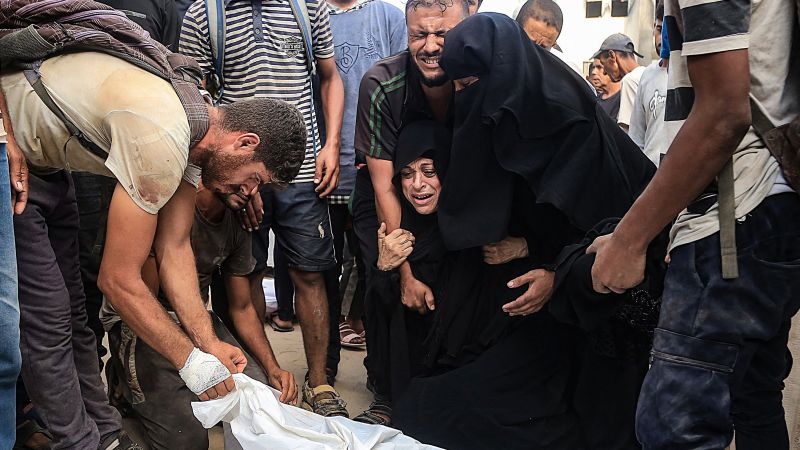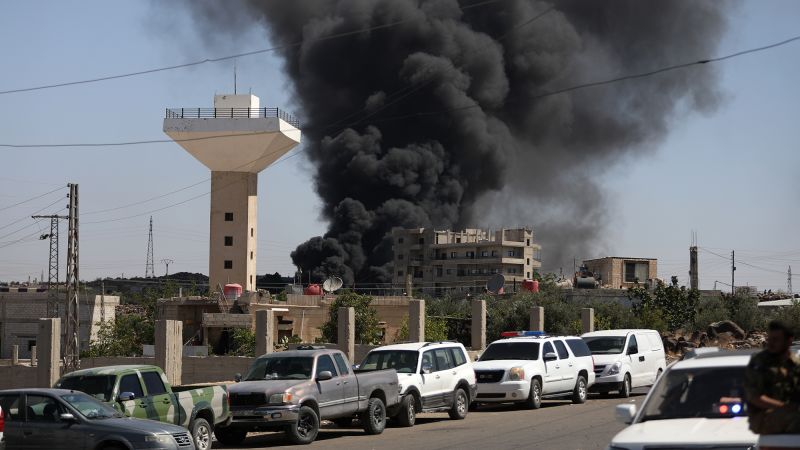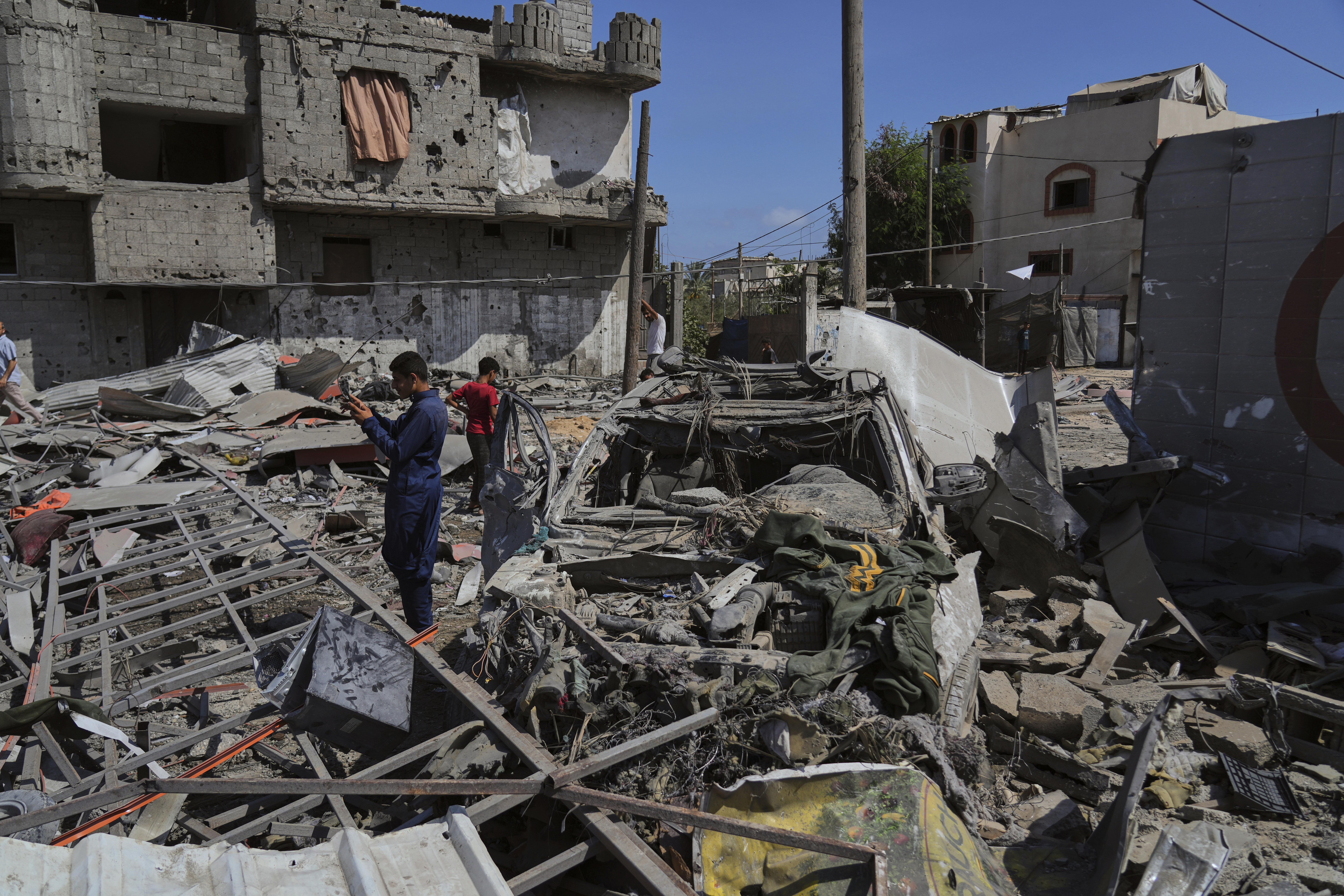Israeli Forces Open Fire on Gazans Seeking Food Aid

Introduction
The recent news of Israeli forces opening fire on Gazans seeking food aid has caused widespread outrage and concern. The Palestinian health ministry and witnesses reported that at least 32 people were killed in the tragedy. This is a heartbreaking example of the dire situation in Gaza, where many people are struggling to access basic necessities.
Key Details
The situation in Gaza has been worsening in recent years, with limited access to food, water, and medical supplies. The ongoing conflict and blockade have made it difficult for aid organizations to provide sufficient support to the people in need. The recent incident highlights the desperate measures people are forced to take in order to survive. It also sheds light on the consequences of the ongoing conflict, which has resulted in the loss of innocent lives.
Impact
This tragic event has sparked international outcry and raised questions about the actions of Israeli forces. It also brings attention to the ongoing humanitarian crisis in Gaza and the urgent need for a resolution to the conflict. The loss of life and the struggles of the people in Gaza should not be ignored or overlooked. More needs to be done to ensure the safety and well-being of the people in the region.
About the Organizations Mentioned
Palestinian Health Ministry
The **Palestinian Ministry of Health (MoH)** is the principal government body responsible for managing and delivering healthcare services in the West Bank, Palestine. Established in 1994 following the Oslo Accords and the creation of the Palestinian Authority (PA), the MoH took over healthcare responsibilities previously managed by the Israeli administration. Since then, it has become one of the four main health service providers in Palestine, alongside Military Medical Services, the United Nations Relief and Works Agency (UNRWA), and various NGOs and private entities[1][2]. The Ministry operates 27 hospitals and controls 61% of hospital beds in the region, providing a broad range of health services from primary care to specialized hospital treatments. It plays a crucial role in improving health system governance, expanding equitable access to quality healthcare, and encouraging healthier lifestyles, especially for vulnerable populations[1]. The Ministry has spearheaded significant infrastructure expansion, increasing government primary healthcare clinics from 207 to 365 between 1994 and 1998, and has developed national health information systems and health insurance schemes[2]. In recent years, the MoH has focused on enhancing healthcare quality and efficiency through projects like the Health System Efficiency and Resiliency Project (HSERP), which aims to scale up cost-effective primary healthcare services, improve chronic disease management, and implement unified electronic patient records to enable integrated service delivery across healthcare levels[3]. Despite these advances, the Palestinian health system faces severe challenges, particularly due to ongoing conflict and restrictions. The healthcare infrastructure in Gaza has been devastated since 2023, with hospitals non-functional and medical supplies critically low, while the West Bank’s health facilities operate under strained conditions due to movement restrictions and resource shortages[7]. The Ministry continues to navigate these difficulties while coordinating with NGOs and international donors to sustain and improve health services[4][5]. Leadership transitioned from Dr. Mai al-Kaila (2019-2024) to Maged Abu Ramadan (2024-present), who continues t
Israeli Forces
## Overview The Israel Defense Forces (IDF), commonly referred to as "Israeli Forces," is the unified military organization responsible for safeguarding the State of Israel against external and internal threats[1][3]. Established on May 26, 1948, just days after Israel's declaration of independence, the IDF was formed by integrating three pre-state underground militias—Haganah, Irgun, and Lehi—into a single, professional armed force[1][6]. The IDF is unique among militaries for its integration of ground, air, and naval forces under a unified command, as well as its conscription of both men and women[2]. ## What the IDF Does The IDF’s primary mission is national defense, shaped by Israel’s geopolitical reality: a small country surrounded by potential adversaries. Its doctrine is strategically defensive but tactically offensive, emphasizing preemptive strikes, rapid mobilization of reserves, and the use of advanced technology to compensate for limited manpower and territory[1][3]. The IDF maintains a small standing army, supported by a large, well-trained reserve force that can be quickly activated in times of crisis[1][3]. The organization comprises three main branches: Ground Forces, Air Force, and Navy, each with specialized units such as the Paratroopers Brigade, Shayetet 13 (naval commandos), and elite intelligence units[1][2][7]. The IDF also oversees cyber defense, missile interception systems (notably the Iron Dome), and maintains close military-industrial ties with leading Israeli tech firms[2][5]. ## History and Key Achievements The IDF has played a central role in every major conflict involving Israel since 1948, including the 1948 War of Independence, the Six-Day War (1967), and the Yom Kippur War (1973)[1][3]. Its ability to rapidly mobilize and adapt has been pivotal in ensuring Israel’s survival against numerically superior foes. The ID















